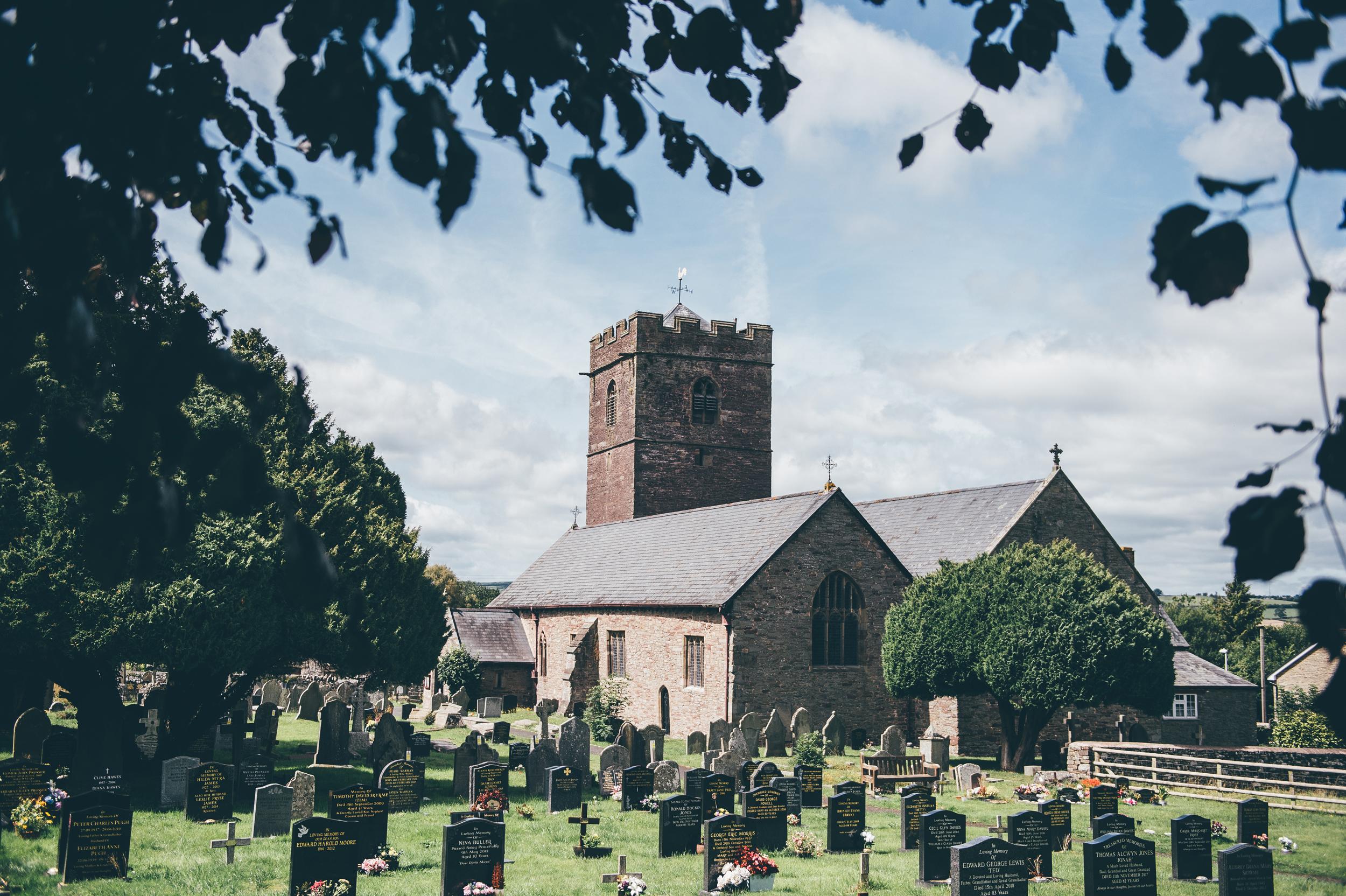St Ellyw
Llanelieu, Powys
The church is remotely situated, deep in the Black Mountains (Brecon Beacons National Park) in a large and ancient churchyard.

This medieval church is said to occupy the site where St Gwendoline was buried, reputedly one of many saintly descendants of the 5th century king Brychan Brycheiniog.
Talgarth, Powys
In the 1090s the church at Talgarth was granted to Brecon Priory by Bernard de Neufmarche, the Norman lord of Brecon.
Much of the present church dates from c.1400, when elements of earlier church windows were reused. The tower was erected in the 15th century and has six bells from the 18th century. Some alterations were made during restoration in 1873.
Howell Harris (1714-1773) is buried near the altar. He was inspired to take up preaching by the sermons of Pryce Davies, vicar of Talgarth, in 1735. He became a guiding force in the evolution of Methodism in Wales, and is considered by some to be the most influential Welshman of his time. In 1752 he founded a Methodist community at Trefeca, near Talgarth, which later became a training college for preachers.
His burial in an Anglican church may strike us as odd, but Methodists generally did not have their own burial grounds. His father, also called Howell, is buried in the churchyard.
On a pillar inside the church is a roll of honour, listing the local men who served in the First World War. A memorial service was held in the church in September 1917 to honour the 13 Talgarth men who had died in the war by then. The names of the local dead of the First and Second World Wars are read out in the church’s annual remembrance service in November, when children place a wreath at the memorial pillar.
Llanelieu, Powys
The church is remotely situated, deep in the Black Mountains (Brecon Beacons National Park) in a large and ancient churchyard.
Llangors, Powys
The first record of a church in Llangors comes from 1152, and its early medieval roots are revealed in its curved churchyard and location beside a stream, both common in early medieval foundations in Wales.
Glasbury on Wye, Powys
You can’t get a chapel much older than Maesyronnen, it is considered one of the most important buildings in Wales.